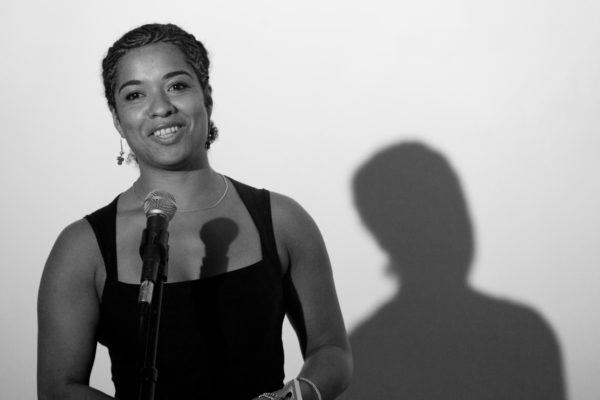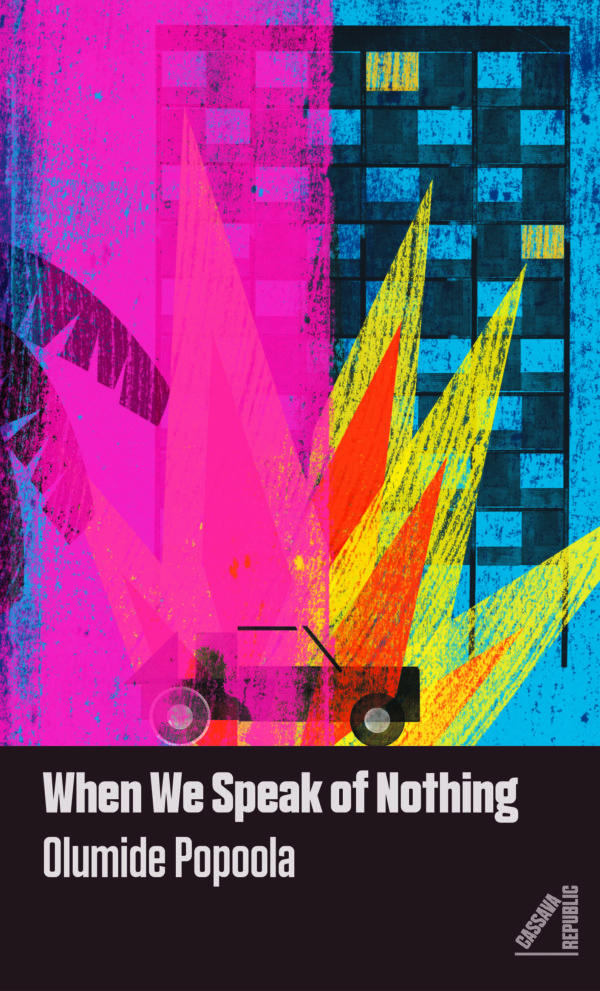Olumide Popoola recently joined Cassava Republic‘s impressive list of writers. This places her in fine company—with the likes of Sarah L. Manyika, Abubakar Adam Ibrahim, Nnedi Okorafor, Elnathan John, and Yemisi Aribisala.
On July 3, Cassava Republic published her debut novel, When We Speak of Nothing. Popoola, a London-based Nigerian-German writer, presents a story that mirrors her own multi-cultural experience as a person with multiple ancestry and cultural contexts. The novel tells the story of Karl and Abu, two 17 year old boys and the series of events that sends Karl to far away Port Harcourt in a bid to escape the lure of violence in his estate community while entangling Abu in the web of violence that engulfs the city of London after the shooting of Mark Duggan in 2011.
Here is the synposis:
Best mates Karl and Abu are both 17 and live near Kings Cross. Its 2011 and racial tensions are set to explode across London. Abu is infatuated with gorgeous classmate Nalini but dares not speak to her. Meanwhile, Karl is the target of the local “wannabe” thugs just for being different. When Karl finds out his father lives in Nigeria, he decides that Port Harcourt is the best place to escape the sound and fury of London, and connect with a Dad he’s never known. Rejected on arrival, Karl befriends Nakale, an activist who wants to expose the ecocide in the Niger Delta to the world, and falls headlong for his feisty cousin Janoma. Meanwhile, the murder of Mark Duggan triggers a full-scale riot in London. Abu finds himself in its midst, leading to a near-tragedy that forces Karl to race back home.When We Speak of Nothing launches a powerful new voice onto the literary stage.The fluid prose, peppered with contemporary slang, captures what it means to be young, black and queer in London. If grime music were a novel, it would be this.
In this urban coming of age story, Popoola places the question of difference at the heart of storytelling. When We Speak of Nothing weaves a powerful story around the angst of youth butting against the vulnerability of queerness and racial difference. It is a novel that gives us the personal, private dimension of what it means to be young, black, and queer. But it also reminds us that the private and subjective aspects of life is always being shaped, hemmed in, and threatened by something outside and far bigger than the individual.
There is so much that is fascinating about the book. For example, the novel is framed by a prologue featuring Esu the Yoruba deity, who is known for being a trickster and the guardian of crossroads. In many ways, the form of the novel— its multi-layered narrative universe and its investment in the intersections of race, queerness, and transgendered life—speak to the hybridity and dynamism attributed to Esu. We love this idea of rooting the logic of storytelling on an African cosmological element. It is innovative and worthy of note.
When We Speak of Nothing is also simply a beautiful read. The story is built on multiple threads of suspense. The brisk, airy, and youthful language of the novel gives the reader the feeling of having encountered something truly new. But what glues the reader to the page is the lives of two teenagers set adrift against currents of history that threaten to overpower and silence them.
Kudos to Popoola for writing such brilliant and essential work of fiction. Her investment in queer experience places When We Speak of Nothing within a growing body of work, which includes Chinelo Okparanta’s Under the Udala Tree and Diriye Osman’s Fairytale for Lost Children—work that bear witness to the growing diversity of African fiction through the documentation queer black/African lives.
You can begin reading When We Speak of Nothing by clicking HERE.
**********
To stay up to date with Popoola and her work:
Follower her on twitter: @msolumide
Visit her website: olumidepopoola.com
************
Author’s image via Arvon











Love in Literature: Reading Love in Literature - Cassava Republic Press January 08, 2024 17:14
[…] between London and Nigeria, When We Speak of Nothing is a story that Brittle Paper describes as “an ode to queer black […]